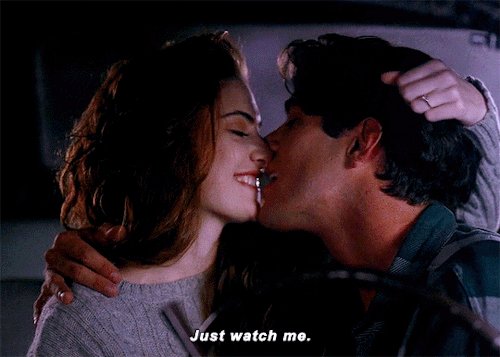“Although Bisexuals Have Always Been Part Of Lesbian And Gay Movements And Communities, They Have Often
“Although bisexuals have always been part of lesbian and gay movements and communities, they have often not been visible as bisexuals in these groups. Consider, for instance, these little-known historical facts:
A bisexual man was one of the key organizers of the first national March on Washington for Lesbian and Gay Rights in 1979. He also cofounder the National Coalition of Black Lesbians and Gays and led a delegation of black gays to meet with White House staff while Carter was President.
A bisexual Washingtonian was one of the first women to write about living women in the national feminist news journal, off our backs, in 1972.
It was a bisexual man who conceived and spearheaded the successful national “gaycott” of Florida orange juice in response to Anita Bryant’s homophobic “Save Our Children” campaign in Dade County, Florida, in the late 1970s.
A lesbian-identified bisexual ex-suburban housewife ran for Vice President on a bisexual/lesbian/gay civil rights platform during the 1984 Democratic Party convention in San Francisco.
In May 1989, a bisexual veteran from New England, representing the National Gay, Lesbian, and Bisexual Veterans Association, was the first out-of-the-closet veteran invited to testify before Congress on behalf of all lesbian, gay, and bisexual veterans.
But even in these high-profile “out” positions, bisexuals often continued to be perceived as gays and lesbians by both the gay rights movement and the rest of society.”
- Loraine Hutchins, Bisexuality: The Psychology and Politics of an Invisible Minority
More Posts from Bi-supremacy and Others



If you give $100 to a homeless person, they'll be in shock by your generosity. They'll feel guilty taking such a ridiculously large amount of money from you.
But if you give $1,500 to your landlord every month, next year they'll demand more unless the law literally says they can't.
Meanwhile, people demonize the homeless person as a "freeloader" while respecting the landlord.

“Despite the almost crushing weight of my family’s and society’s requirements, the one thing I have never felt is heterosexual.”
- Sharon, Bisexual Lives


“I am married and monogamous. Not much of a bisexual you say. Yet my bisexuality influences my perception and my decisions. More than having sexual relations with both genders, bisexuality is a mind frame, a reference point from which to view the world. Being bisexual has more to do with potential than actuality.”
- Amanda Yoshizaki, Bi Any Other Name: Bisexual People Speak Out


Erika Kamano
“But if it rejects us, the gay movement loses more than numbers and strategic force. It also loses another opportunity, similar to that offered by other “sexual minorities,” to re-examine its commitment to sexual freedom rather than to mere interest-group politics. What would it mean for the gay movement to acknowledge that some people experience their sexuality as a lifelong constant, others as a series of stages, some as a choice, and many as a constant flux? It would certainly mean a drastic reworking of the standard categories which have grounded gay politics over the last decade. And it might mean a renewed commitment to the revolutionary impulse of gay liberation, which, believing that homosexual desire is a potential in everyone, insisted that “gay” is a potentially universal class, since sexual freedom for all people is the ultimate goal of our struggle.”
- Lisa Orlando, Bi Any Other Name: Bisexual People Speak Out




-
 mellifiedfemme liked this · 5 months ago
mellifiedfemme liked this · 5 months ago -
 thetranstwink reblogged this · 6 months ago
thetranstwink reblogged this · 6 months ago -
 thetranstwink liked this · 6 months ago
thetranstwink liked this · 6 months ago -
 perfect-bi-paradise liked this · 6 months ago
perfect-bi-paradise liked this · 6 months ago -
 femmeloverboy liked this · 7 months ago
femmeloverboy liked this · 7 months ago -
 sackvillesque liked this · 11 months ago
sackvillesque liked this · 11 months ago -
 hscorpio18 liked this · 1 year ago
hscorpio18 liked this · 1 year ago -
 callousprincess liked this · 1 year ago
callousprincess liked this · 1 year ago -
 cadetie reblogged this · 1 year ago
cadetie reblogged this · 1 year ago -
 vialium liked this · 1 year ago
vialium liked this · 1 year ago -
 swaghaver69 liked this · 1 year ago
swaghaver69 liked this · 1 year ago -
 radresource reblogged this · 1 year ago
radresource reblogged this · 1 year ago -
 radfem-suggestion reblogged this · 1 year ago
radfem-suggestion reblogged this · 1 year ago -
 partymoth liked this · 1 year ago
partymoth liked this · 1 year ago -
 eldopism reblogged this · 1 year ago
eldopism reblogged this · 1 year ago -
 eldopism liked this · 1 year ago
eldopism liked this · 1 year ago -
 aworldunturning liked this · 1 year ago
aworldunturning liked this · 1 year ago -
 cadetie reblogged this · 1 year ago
cadetie reblogged this · 1 year ago -
 cadetie liked this · 1 year ago
cadetie liked this · 1 year ago -
 mariemariemaria liked this · 1 year ago
mariemariemaria liked this · 1 year ago -
 khfanforall reblogged this · 1 year ago
khfanforall reblogged this · 1 year ago -
 readingbibooks reblogged this · 1 year ago
readingbibooks reblogged this · 1 year ago -
 dyinggirldied liked this · 1 year ago
dyinggirldied liked this · 1 year ago -
 eternalxblossom liked this · 1 year ago
eternalxblossom liked this · 1 year ago -
 readingbibooks reblogged this · 1 year ago
readingbibooks reblogged this · 1 year ago -
 anti-death reblogged this · 1 year ago
anti-death reblogged this · 1 year ago -
 bisexual-coala liked this · 1 year ago
bisexual-coala liked this · 1 year ago -
 mountainsoftreatos liked this · 1 year ago
mountainsoftreatos liked this · 1 year ago -
 katspause liked this · 1 year ago
katspause liked this · 1 year ago -
 hello7there reblogged this · 1 year ago
hello7there reblogged this · 1 year ago -
 hello7there liked this · 1 year ago
hello7there liked this · 1 year ago -
 adverbian reblogged this · 1 year ago
adverbian reblogged this · 1 year ago -
 adverbian liked this · 1 year ago
adverbian liked this · 1 year ago -
 ivereadthemanual reblogged this · 1 year ago
ivereadthemanual reblogged this · 1 year ago -
 bisexual-coala reblogged this · 1 year ago
bisexual-coala reblogged this · 1 year ago -
 bisexualhistorycollection reblogged this · 1 year ago
bisexualhistorycollection reblogged this · 1 year ago -
 l3nal3nouille2 liked this · 1 year ago
l3nal3nouille2 liked this · 1 year ago -
 celestefem liked this · 1 year ago
celestefem liked this · 1 year ago -
 meowmeowpspsps liked this · 1 year ago
meowmeowpspsps liked this · 1 year ago -
 petalsmiles reblogged this · 1 year ago
petalsmiles reblogged this · 1 year ago -
 plexiglasscoffin liked this · 1 year ago
plexiglasscoffin liked this · 1 year ago -
 taylovelinus reblogged this · 1 year ago
taylovelinus reblogged this · 1 year ago